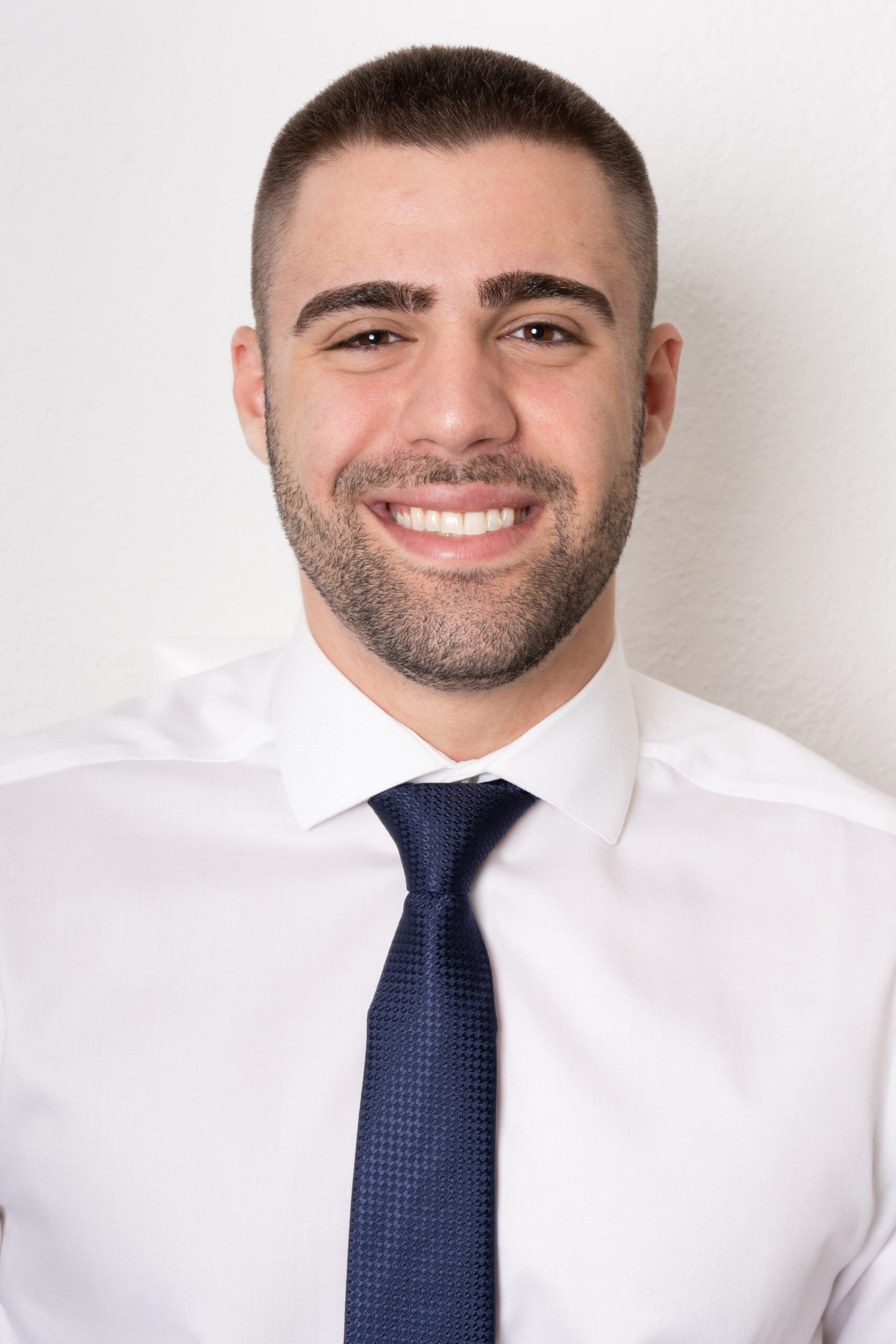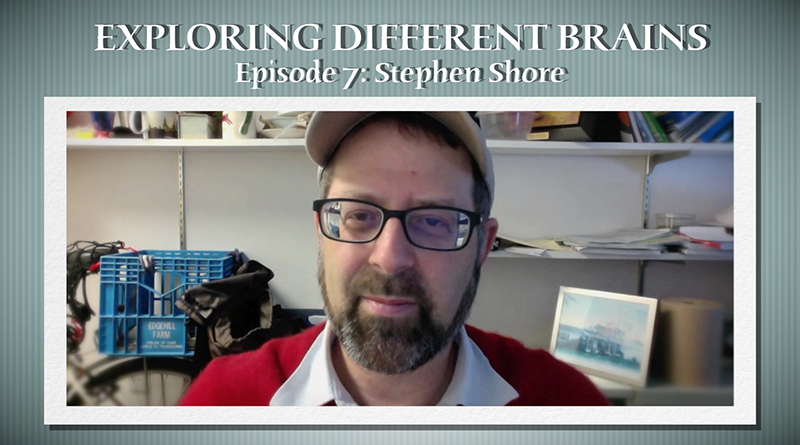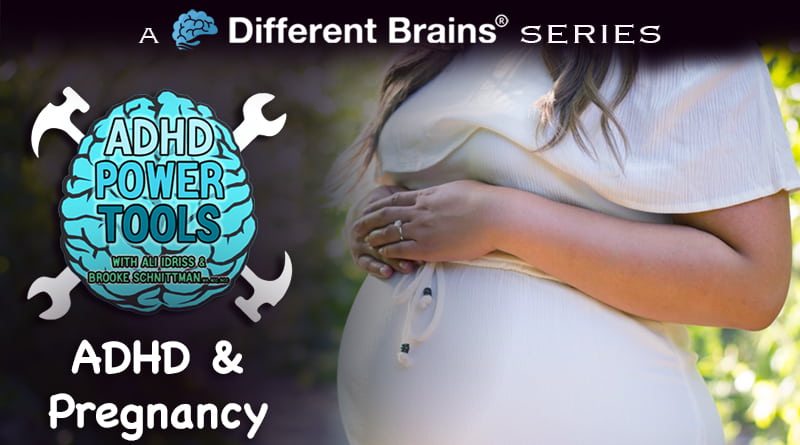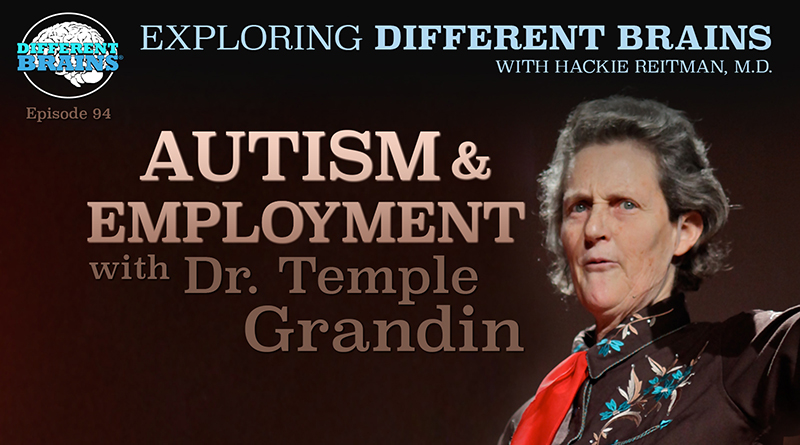ADHD & Pregnancy Part 3 | ADHD Power Tools w/ Ali Idriss & Brooke Schnittman

(10 mins) In this episode of ADHD Power Tools, Ali and Brooke discuss ADHD & Pregnancy!
Brooke Schnittman, MA, ACC, BCC is a certified coach who works with children, students, teens, adults, and parents with or without ADHD. She has been nominated for multiple awards including “Best In Show Community” and ”Advocating For Another.” She is the creator of What’s Next and ADHDEdCamp.
Ali Idriss is a Different Brains intern and ADHD self-advocate. He aspires to share his journey and help others with the tools that have allowed him to overcome many of the challenges along the way, as he co-hosts ADHD Power Tools and conducts research on college students with ADHD. Ali has completed his bachelor’s in Biological Sciences at Florida Atlantic University and is currently completing his second bachelor’s in Neuroscience and Behavior at Florida Atlantic University. He is also an Emergency Medical Technician and is aspiring to become a physician
For more on Brooke and her work, visit: https://www.coachingwithbrooke.com/
EPISODE TRANSCRIPT:
ALI IDRISS (AI): Hello, everybody. Welcome back to ADHD Power Tools. I want to congratulate you, Brooke on being a new mom. And speaking of being a new mom, I want to ask you, what can you give us, our viewers, tools on being a new mom with ADHD?
BROOKE SCHNITTMAN (BS): Okay, well, thank you for the congratulations, it’s definitely been eye opening. And I love every moment of it. Priorities definitely shift when we become a mom. I mean, I was a step-mom of two boys, but it’s totally different having a newborn and not have gotten going through that stage previously, this baby just is totally dependent of you. So it’s so rewarding, but also a lot at the same time. So it’s okay to feel overwhelmed and exhausted, if you’re listening right now and you’re a new mom, or if you’re pregnant, or thinking about getting pregnant, and you’re worried about that stage, it’s okay, you know, it’s normal, it’s a new thing, it is stressful, but it’s totally rewarding at the same time.
So a couple of things that have just, you know, come up for me and some other new moms with ADHD that I would like to share for those of you who are new moms or thinking about being new moms, is if you’re on medication for your ADHD, speak to your doctor about medication. So a lot of ADHDers, take stimulant medications, non stimulant medications might also take antidepressants for CO existing conditions like anxiety and depression. And I would say just to, you know, before you become a new mom, speak to your doctor about whether or not you can continue those because if you can’t, you are going to try to wean off of that, which does take a while to do. So, you know, people ask me, Hey, can I stay on my medication? And really, you know, I would say that’s a personal decision with your doctor, some people stay on and some people don’t. There’s risk reward for that. So again, speak to your doctor.
So, decide ahead of time, if you can: do you want to breastfeed? Do you want to pump? Do you want to go the formula route? Whatever way you decide to go? You know, don’t make yourself feel guilty about it. And with that being said, Try not I know it’s hard, but try not to compare yourself to what other mothers do. Because we know that a lot of people saying say that breastfeeding is the best way. But at the same time, if you’re having like scheduling difficulties or lodging difficulties, don’t beat yourself up about it know that it’s okay, you know, you’re you are going to be able to spend more time with your child and be more present with them in other ways if you don’t have that ability to do that.
Also with comparing, I know what there’s so much information out there. It’s like, oh my god, what am I supposed to do during this phase? You know, I was in the fourth trimester — well, I still am in the fourth trimester. But what am I supposed to start a nighttime routine? When I’m What should I do sleep training, they do that and what should we do? So one step at a time, whatever works for you and your baby. Every baby is unique, just like every individual with ADHD is unique. So there’s, there’s a couple of things that I definitely just want to share, I think might help and get, you know, like, if you if you want to educate yourself on different stages of childhood and newborn, there’s apps like The Bump that sends me a notification every week, like congratulations, you read, they actually sent me one today, your baby’s 11 weeks. And this is these are some of the changes that you should expect in these 11 weeks. So I know what to look forward to. Again, it’s not a one size fits all. It’s not necessarily all 11 week, babies, but these are some things that you should expect. So it kind of gives me some excitement to know like what to look forward to.
AI: Yes. I love these tools. Is there anything else?
BS: Oh, yeah. There’s tons of other things.
AI: I want to ask you a quick question. I want to ask you so you talk about comparing and talk about the influx of information that comes in, right? You hear a lot of different information but how do you filter out duties resources, what’s reliable? What really what’s what’s the most reliable Brooke? Do you have like a like a specific resource that you make sure you can trust?
BS: Yeah, so The Bumps been around for a really long time. So I read those As articles, I also read “What to Expect” that has been so helpful. So they’ve had “What to Expect When You’re Expecting” for years, my aunt actually gave me her old book. But I also thought what to expect with a new bar your first year. So every time I’m pumping in the middle of the night, I’ll just read a little bit of that and say, All right, where’s my baby at? Like, what phase is she? And what should I expect? And it just gives me some, like, solid ground to say, okay, I can do this now. So maybe I should try this. So I don’t have that analysis paralysis, books, like Babywise. That’s also super helpful. I was passed down that book by someone who has teenagers now. But I would say those resources have been really helpful.
Also, speak to friends or family, if you want, ones that you trust, and you value their opinions and their information doesn’t mean that you have to do with the way that they’re doing it. But they might be helpful. If you have a question like, Hey, I don’t know what to do when during bath time, or, Hey, do I need to sterilize my bottles, blah, blah, like, you know, might be helpful if you trust and value their opinion as well.
AI: Yes, 100%.
BS: Also, in the hospital that I delivered, they have mommy support groups to for free. So it’s on Zoom, it’s every Monday. So sometimes I’ll just pop in and see what the other moms are doing speak to therapists, and they grew up like, hey, you know, what should I expect with this X, Y, and Z. So that’s helpful as well.
But also some things to be aware of, are, you know, like, ADHD, as you said before, they hate routine, but thrive on it at the same time? Well, when you have a newborn routine’s out the door, so it can be it can be hard, it’s like okay, now I have to create a new routine. So with that being said, it’s important to create some sort of routine down the road with your baby.
So your routine can be based on what you’re doing in the baby. So if you’re putting down the baby, fair enough, then you can do what you need to do during naptime or whatever. So with that being said, there is routine adjustments and there sleepless nights, which also increase your ADHD symptoms. I know I’m not glamorizing this, but I promise it’s worth it. And it’s really important to invest in help like a partner or family member hired, don’t feel guilty if someone says, Hey, can I come and watch your baby so you can take a shower, or you can work out or take a nap, like, encourage that you’re not Superwoman. We burn out too. And we can’t fill from an empty cup. I know we’ve heard it before. So make sure you’re taking care of yourself and allowing others to help when they say, Hey, can I do this? Fine. Also, baby swings, babywear things like that are super helpful. I like taking my baby on a walk in the stroller, she falls asleep and it gives me that time to walk, be in vitamin D and nature get outside, do stuff for myself as well.
AI: Yes, it sounds like this, this the fourth trimester that you speak of requires a lot of executive function skills. And, you know, it’s, you know, that lack of routine and you got to really organize really well. And it’s so important to understand that it’s going to be a speed bump. It’s gonna be it’s gonna be kind of all over the place could be a mess, but you make a really good point. It’s all good. It’s all really worth it. Very good point with that.
BS: Yeah, and don’t expect too much from yourself. Especially if you’re a first-time mom. I mean, how do you like you’re gonna do things wrong, things aren’t gonna go as planned. But there’s really no manual on how to be a mom. There’s the books that I mentioned, there’s, you know, support groups, but you’re doing the best you can and you’re gonna mess up sometimes. And it’s okay. You’ll move forward.
So those are my tips for those of you who are either looking to be a mom are our new mom. I also follow MommyLaborNurse. She’s an amazing resource as well. She’s like 500,000 people on Instagram. She is a labor nurse and also has wonderful courses that I wish I knew when I was pregnant, about what to expect and how to plan and when you are a mom. So I think that’s helpful and her free social media content is very digestible in bite-sized chunks as well. And you could follow I did an Instagram live with her you can follow it on my Instagram. I post on my blog too, if you need
AI: Okay, and what was the username
BS: MommyLaborNurse.
AI: MommyLaborNurse. Okay sounds good thank you, Brooke.
BS: You’re welcome

Ali Idriss is a Different Brains intern and ADHD self-advocate. He aspires to share his journey and help others with the tools that have allowed him to overcome many of the challenges along the way, as he co-hosts ADHD Power Tools and conducts research on college students with ADHD. Ali has completed his bachelor’s in Biological Sciences at Florida Atlantic University and is currently completing his second bachelor’s in Neuroscience and Behavior at Florida Atlantic University. He is also an Emergency Medical Technician and is aspiring to become a physician.




